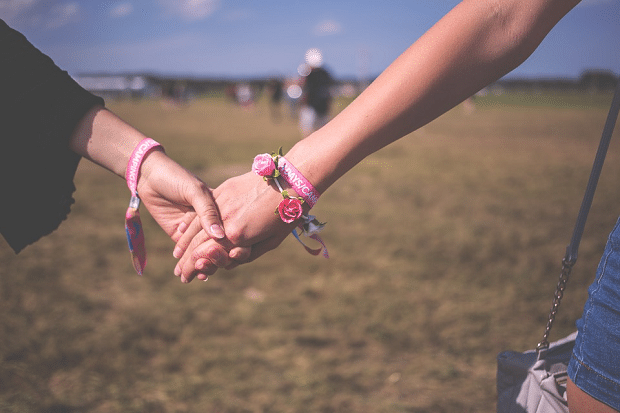
The research, by media agency UM, goes on to suggest that, out of the 500 surveyed, eight out of ten (82%) LBTQ+ women believe they might have come out sooner if brands had shown people like them in ads when they were growing up.
- More than nine out of ten queer women think they are negatively stereotyped in the media
- 91% think there is misogyny in society towards LGBTQ+ women specifically
- Eight out of ten (82%) believe they might have come out sooner if brands had shown people like them in ads when they were growing up
- Is there stigma in the word ‘lesbian’? One in five homosexual women wouldn’t self-define that way.
Research revealed today shows that more than nine out of ten queer women (92%) believe they are negatively stereotyped in the media and popular culture. In addition, 86% believe queer women still don’t have enough visibility in public life and culture and 92% believe there is prejudice against them in society generally.
In fact, the amount of stigma surrounding the community may even be leading homosexual women to reject the word ‘lesbian’, as one in five say they wouldn’t be likely to self-define in this way.
The most common media stereotypes are that ‘in every queer couple, one has to be the man’ (according to 82% of non-straight women), that ‘they always have short hair’ (75%) and that ‘they are ‘butch and manly’ (74%). But other stereotypes also exist, such as ‘they are man haters’ (63%) and ‘they have had a bad experience with a man that made them queer’ (57%).
Many of these perceptions are seen as insulting, but the most offensive stereotypes are that these women are ‘men trapped in a female body’ or that ‘they just haven’t been with the right guy yet’.
Also according to the respondents, the biggest culprits for creating and maintaining these negative stereotypes were movies (51%), TV programmes (50%) and celebrity culture (40%).
The survey of nearly 500 women who define as queer (lesbian, bisexual or otherwise non-straight) was carried out by media agency UM as part of UK by UM, its ongoing research into stereotyping in media and advertising. The survey was targeted to users of HER – a leading queer female dating and social app.
It found that queer women would most like to see greater visibility of their community on TV (85%), in movies and in the government (both 81%).
When asked why they think the visibility of LGBTQ+ women is still so low in the media, eight out of ten (80%) say it’s because of the perceived risk of not appealing to the mass market and 61% believe it’s because queer women ‘make people uncomfortable’.
And when there are positive impressions of queer women in society, they are most likely to be promoted by these women’s own personal experiences of other queer women, rather than anything seen in the media or in the public eye. Eight out of ten (82%) of LGBTQ+ women even believe they might have come out sooner if brands had shown people like them in their ads when they were growing up.
The study also highlighted that 86% of queer women believe queer men have more public visibility than they do, that 83% think society tries to ‘sweep queer women under the rug’ – and that a shocking 91% think there is misogyny in society towards queer women specifically.
Michael Brown, head of insight at UM, comments: “While prejudice towards the LGBTQ+ community sometimes shows signs of abating, there’s a worrying amount of stigma that remains towards queer women in particular. Advertisers have a huge part to play in defining identity norms, and as long as these enduring toxic representations continue to appear, large segments in society are being alienated.
“Perhaps even worse than the stigma is that widespread lack of visibility of queer women in public life. Brands and the media should put effort into raising the visibility of queer women and challenging damaging stereotypes, as it can help to break down societal barriers as well.
“Given that our research last year found that more than a quarter of UK adults identify as something other than ‘completely heterosexual’ according to the Kinsey Scale – rising to a third of those aged 35-44 and more than half of those aged 18-24 – this is far too big a community to sweep under the carpet.”
